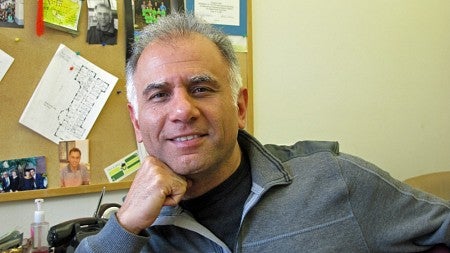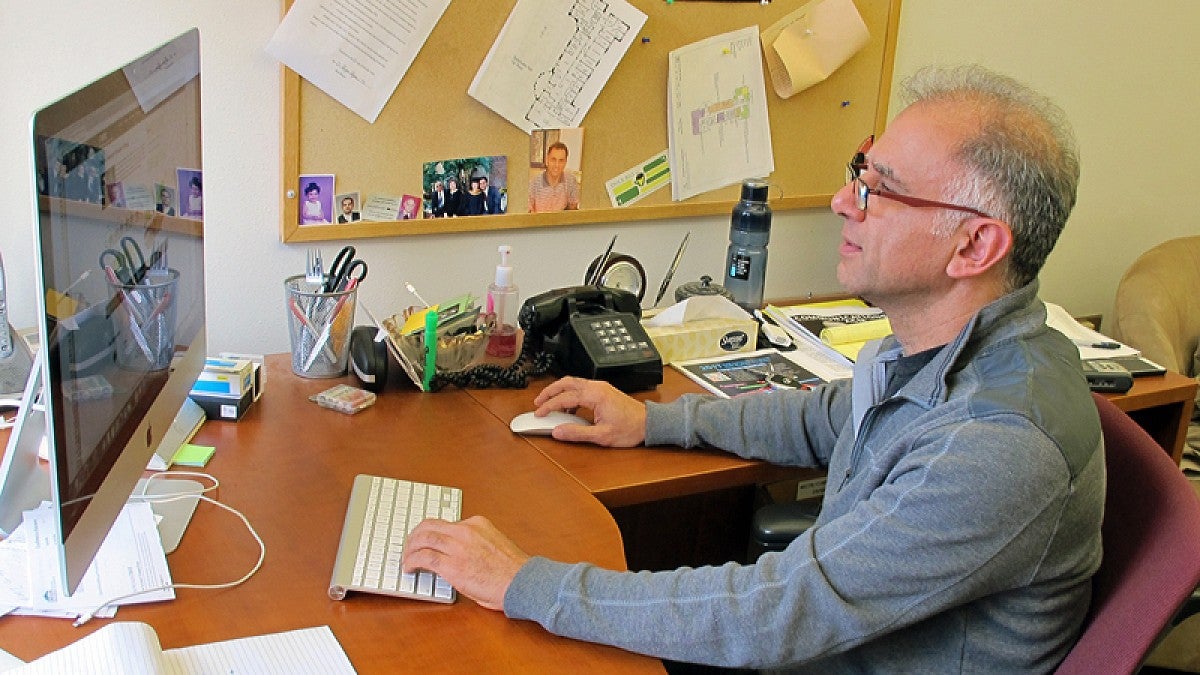Remember those frustrating early days of streaming audio and video online — the excruciating slow data delivery, frequent computer freezes and network congestion?
You can thank UO computer scientist Reza Rejaie for helping to make things better.

“It is reassuring and gratifying to have this recognition,” Rejaie said. “The years go by really fast. You do the research that you consider exciting and impactful, but it is hard to assess the impact of one’s research, even if it is published in the best journals or conferences.”
Elevation to fellow happens to less than one-tenth of one percent of the institute’s membership each year. (See the full list of 2,017 fellows)
The Institute of Electrical Electronics Engineers is the world’s largest technical professional association. It has 421,000 members in 39 professional societies in more than 160 countries. The institute publishes 30 percent of the world’s literature in the electrical and electronics engineering and computer science fields and has developed more than 1,300 active industry standards.
“When the largest technical professional association such as IEEE that oversees researchers across a wide range of disciplines related to electrical engineering and computer science recognizes your work, it gives you a sense that your research has been impactful and visible,” said Rejaie, who joined the UO in 2002 and whose research papers have been cited more than 7,500 times.
His work on network systems and multimedia streaming began while he was a doctoral student in computer science at the University of Southern California. He then worked as a research scientist at AT&T Labs-Research in Menlo Park, California, from October 1999 to March 2002.
Upon his arrival on campus, Rejaie and colleague Jun Li established the department's Computer Networks program. In 2004, Rejaie founded his own Oregon Network Research Group. In 2005, he received a career award from the National Science Foundation for his work on peer-to-peer streaming and a European Union Marie Curie Fellowship in 2009.
“The internet is a shared environment, much like our highways,” Rejaie said. “There are certain behaviors that are necessary to ensure everyone receives a fair share of internet resources, mainly bandwidth. In the late 90s, I introduced new techniques for adaptive video streaming and proxy-caching of videos to make video-streaming applications good citizens on the internet.”
His research led to enhanced peer-to-peer video streaming, in which individual computers connected through the internet share video without requiring intermediate servers. Rejaie likens that process to “hosting your own TV channel from home.”
During the past decade, Rejaie has focused on developing techniques for unbiased and scalable measurements of networked systems. In recent years, he has ventured into the area of social computing by applying his measurement techniques to capture the connectivity structure of posted content by users of social media sites such as Facebook and Twitter.
“I realized that these online social networks would be of interest to social scientists and reached out to my colleagues in different fields — psychology, sociology, economics, political science, journalism and others — to discuss how our capabilities for data collection and data analysis enable social scientists to study different aspects of these virtual societies,” Rejaie said. “The main goal is to help move social sciences from small-scale, hypotheses-driven research using the collected data from questionnaires to large-scale, data-driven research.”
These social-networking efforts have resulted in a couple of joint grants from the National Science Foundation and National Institutes of Health with Sanjay Srivastava, a professor in the UO’s Department of Psychology. Rejaie also is collaborating with psychology professor Nick Allen on techniques to identify Twitter users who suffer from mental health problems such as depression.
—By Jim Barlow, University Communications


